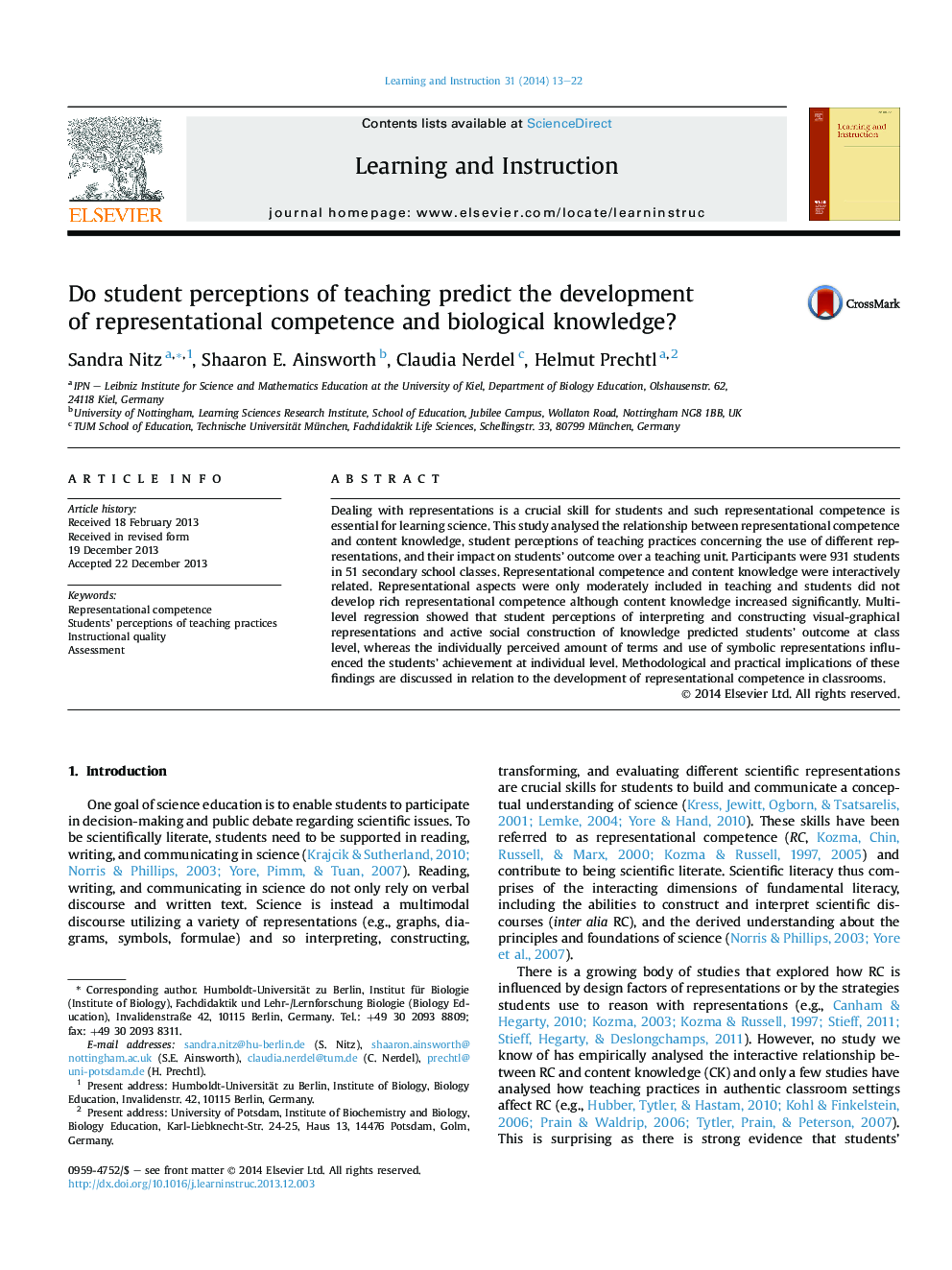| Article ID | Journal | Published Year | Pages | File Type |
|---|---|---|---|---|
| 365574 | Learning and Instruction | 2014 | 10 Pages |
•Representational competence and content knowledge were interactively related.•Representational aspects were only moderately included in teaching practices.•Representational competence improved slightly, content knowledge considerably.•Instruction influenced representational competence and content knowledge differently.
Dealing with representations is a crucial skill for students and such representational competence is essential for learning science. This study analysed the relationship between representational competence and content knowledge, student perceptions of teaching practices concerning the use of different representations, and their impact on students' outcome over a teaching unit. Participants were 931 students in 51 secondary school classes. Representational competence and content knowledge were interactively related. Representational aspects were only moderately included in teaching and students did not develop rich representational competence although content knowledge increased significantly. Multilevel regression showed that student perceptions of interpreting and constructing visual-graphical representations and active social construction of knowledge predicted students' outcome at class level, whereas the individually perceived amount of terms and use of symbolic representations influenced the students' achievement at individual level. Methodological and practical implications of these findings are discussed in relation to the development of representational competence in classrooms.
